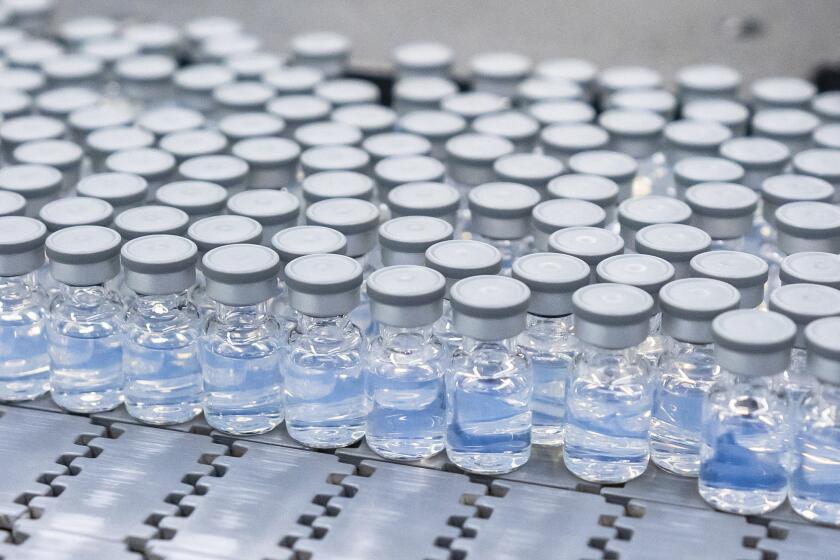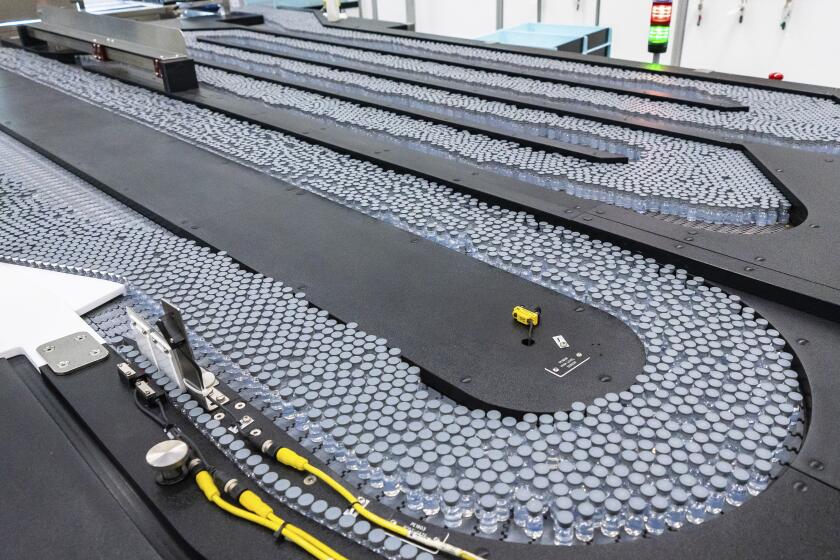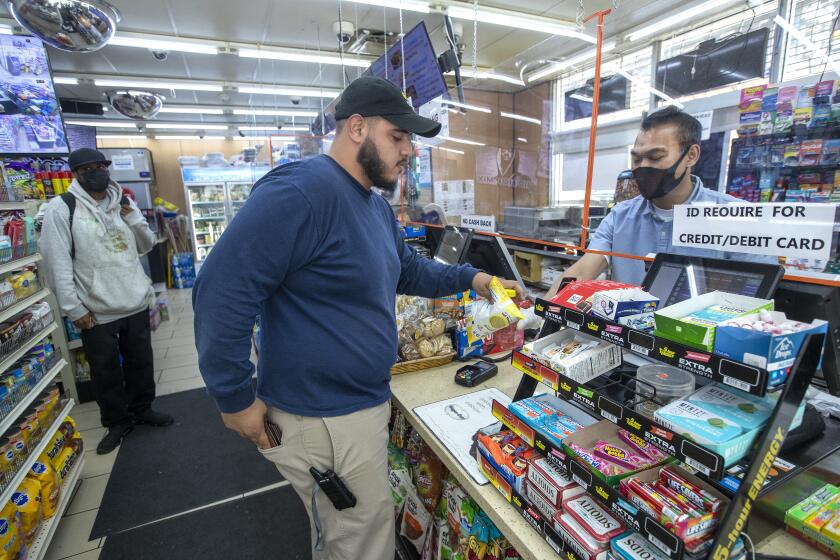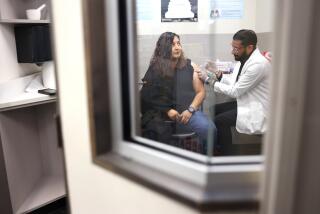When should I get the new COVID-19 Omicron bivalent booster? What experts say
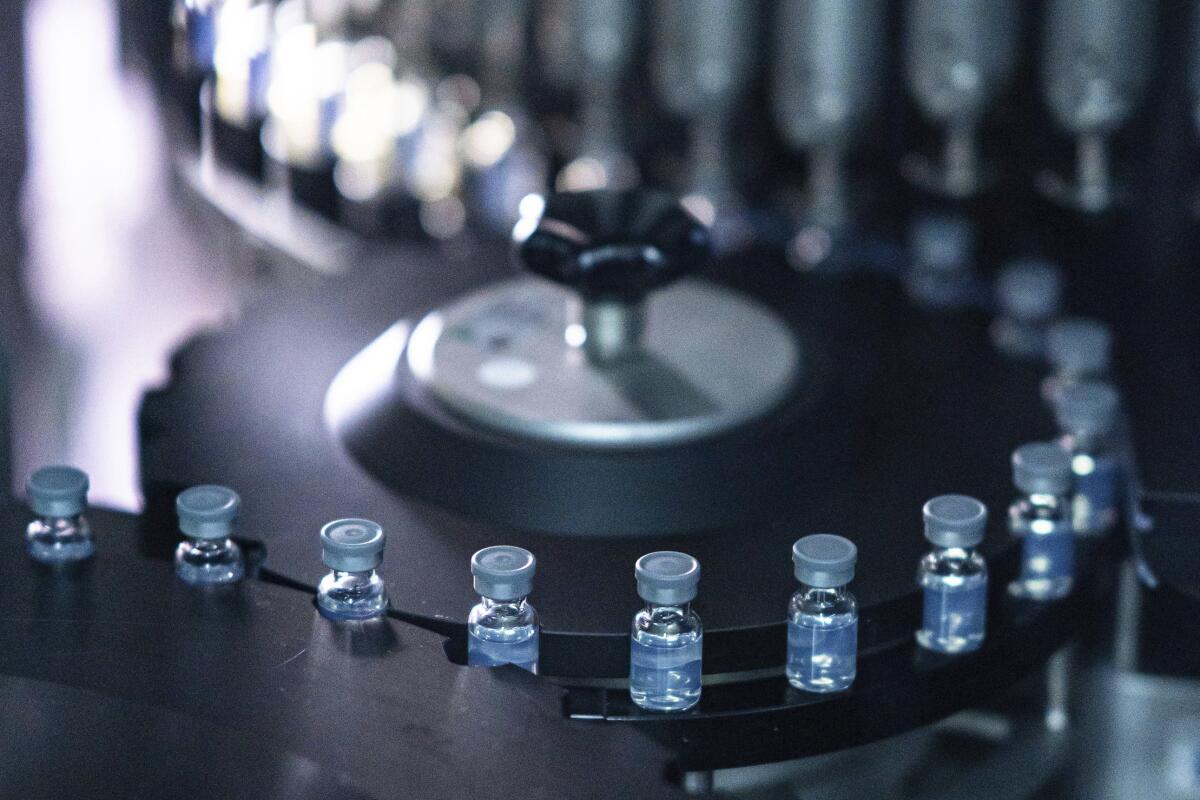
- Share via
When is the best time to get the updated Omicron booster shot?
Although someone’s schedule could change depending on health, occupation or travel plans, officials generally recommend getting the additional bivalent dose ahead of the busy fall-and-winter holiday season.
With Halloween a little over a month away, “planning to increase your protection by getting this updated booster in the next few weeks is a good idea,” Los Angeles County Public Health Director Barbara Ferrer said.
Dr. Peter Chin-Hong, a UC San Francisco infectious diseases expert, suggested that eligible people get both the new booster and flu shot no later than October.
“If you’re trick-or-treating for Halloween and you haven’t gotten your flu shot or your booster yet, that’s probably the time that you should really run out and get it,” he said.
Whenever you opt to roll up your sleeve, it’s important to note that it takes two weeks for the full effect of the booster to hit.
Officials say it takes two weeks after injection for the full protective effect of the booster. The shot’s maximum effectiveness will be one month following injection, but people should enjoy a good degree of protection for four or five months, according to Chin-Hong.
The updated shot is known as a bivalent booster. Unlike the conventional monovalent vaccine and booster, which was designed only against the original coronavirus strain, the new shot targets the original strain and the Omicron subvariants that have dominated the U.S. in recent months, including BA.5.
The updated boosters mean most Californians “will be able to strengthen their protection against COVID-19 as we head into the fall and winter seasons,” state Health and Human Services Secretary Dr. Mark Ghaly and Dr. Tomás Aragón, California’s public health director and state health officer, said in a joint statement earlier this month.
“Because protection from infection can decrease over time, the updated boosters are a safe way to maintain protection and reduce the most severe outcomes of COVID-19, such as hospitalization, long COVID and death,” their statement continued.
The updated bivalent COVID-19 booster shots are available at more than 1,500 sites in Los Angeles County. Here’s how to get one.
During the pandemic’s first fall-and-winter wave in 2020, coronavirus cases in California began increasing in November and accelerated sharply in December. Last year, cases began spiking in December.
People who have neither been boosted nor recovered from a coronavirus infection this calendar year should plan on getting the new shot sooner rather than later, Chin-Hong said.
And those with a big trip coming up, or who are heading somewhere with a higher risk of exposure, may want to time their booster accordingly, at least two weeks from their event.
But Ferrer and Chin-Hong say those at higher risk for severe illness — such as people who are older, immunocompromised or pregnant — should get the new booster without delay.
“People who are at risk for serious complications … I would probably go ahead and give it to them now because that’s really my priority group,” Chin-Hong said.
The state is largely rescinding its broad recommendation that everyone — regardless of vaccination status — mask up in indoor public settings.
However, there are some reasons why it’s OK to delay getting a booster.
The U.S. Centers for Disease Control and Prevention generally suggests residents hold off if it’s been fewer than three months since they tested positive for the coronavirus or started experiencing COVID-19 symptoms, whichever came first.
Other factors could alter that timing, such as the person’s risk factors for developing severe disease.
A person also must be at least two months removed from their last vaccination or conventional booster dose before getting the updated booster.
It’s not dangerous to get the new booster sooner than recommended, Chin-Hong said. But waiting for enough time to elapse will help produce a more effective immune response.
An experimental COVID-19 vaccine aims to get ahead of new variants by priming the immune system to recognize a stable part of the coronavirus.
For those at lower risk of severe COVID-19 disease, some experts say it can be reasonable to wait a bit, timing the shot to be a bit closer — but not too close — to Thanksgiving and the winter holidays.
“While it’s humbling to look back and be reminded of the enormity of the impact of COVID on our lives, we’re also encouraged as we face our third winter with COVID because we’re headed into the colder months with an updated fall booster that matches the variants that are currently circulating,” Ferrer said during a recent briefing.
More to Read
Sign up for Essential California
The most important California stories and recommendations in your inbox every morning.
You may occasionally receive promotional content from the Los Angeles Times.
